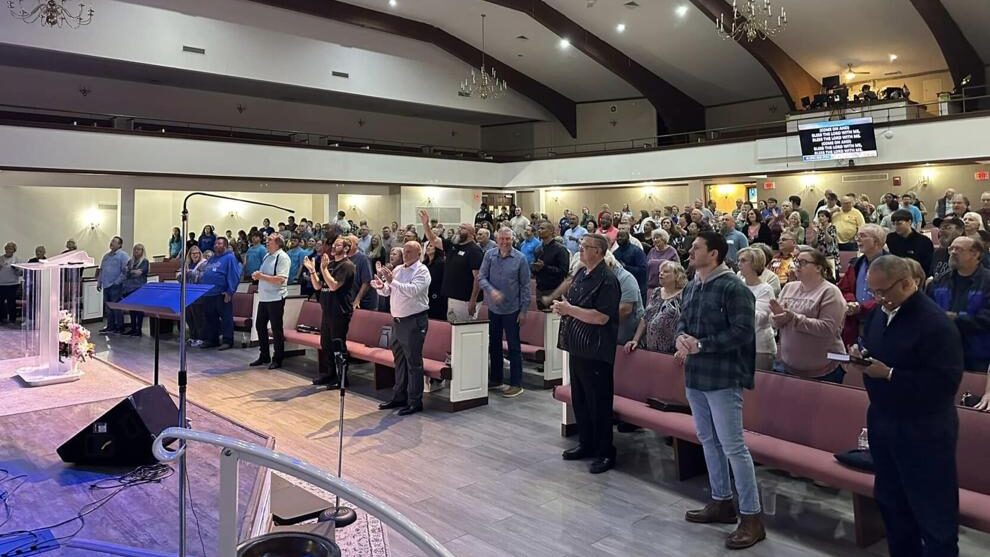The bad news is that many first-time guests in church don’t want to provide contact information, afraid they’ll be bombarded with calls and visits. The good news is that contact made in a respectful way can help bring them back.
Ken Braddy, director of Sunday School & Network Partnerships for Lifeway Christian Resources, conducted a webinar Feb. 10 titled, “Following up with first-time guests,” in which he shared both the good and bad.
Assimilation is defined as “absorbing others into the culture of a population or a group,” he noted, citing research that shows 91% of first-time guests won’t return to a church unless there is an intentional strategy.
Braddy cited the book, “Membership Matters” by Chuck Lawless and (Forward by Thom Rainer), which shows people take up to 18 months to join a new church.
“That’s why I say guest follow-up is a marathon and not a sprint,” Braddy explained.
Evaluate regularly
Guests evaluate everything, he said, so congregations need to give themselves a thorough exam periodically.
“I encourage church leaders to take a day off and visit another church and have a guest experience, and to have a friend come as an [anonymous] guest to their churches and report their experiences to us,” Braddy said. “We found when selling our home to move to Nashville that we had clutter that discouraged buyers. We didn’t notice it because we lived there, but our realtor helped us see with new eyes. This is true also in our churches. We need to see ourselves as they do.”
Braddy noted it can be awkward to be a church guest who doesn’t know where to park, where to sit, what to wear or how to sing songs they don’t know.
“We need to practice biblical hospitality that I define as, ‘Making a stranger feel like a friend,’” he encouraged. “Guests are influenced also by their kids’ experiences, so student ministry and kids ministries should be involved, too.”
Braddy acknowledged that follow-up can sometimes be too aggressive.
“If the gentleman proposes on the first date, his date may run!” he said with a laugh. “Church membership is important, but we don’t have to talk about it up front. The important thing is to include guests in our class and invite them to lunch or to group fellowships.
“Relationships are more important than programs.”
The sooner the better
However, the sooner first-time guests are contacted, the more likely they will return, Braddy noted.
“Our research shows if a contact is made within 36 hours, there is an 85% possibility they will return,” he explained. “After 72 hours, it’s 60% and after seven days it’s 15%.”
Braddy listed several ways to make contact, including telephone or text, Facebook, Twitter, mail or a doorstep visit.
“People don’t necessarily want us to be in their home for an hour, but two or three minutes on the front porch can be meaningful,” he noted. “We’ve found millennials especially are reluctant to give us their physical addresses but they will share their Twitter handle. It’s a new day.”
Braddy said Sunday School classes should include guests in their social media or email communication to keep them “in the loop,” and invite them to participate in community service projects.
“Some classes lunch once a month, and we certainly should invite guests to join us,” he encouraged.
“Follow-up is hard work, and many people need to be involved. But I believe one person in each class has to be in charge of follow-up and point us in the right direction.”
Braddy plans 10 free webinars this year for church and group leaders in a program he calls “Training Thru ’22.” The third will be March 24: “How to ask great questions and lead engaging discussion.” Participants may register at lifeway.com/training22.
Braddy also publishes articles about Sunday School and other group Bible study at kenbraddy.com.








